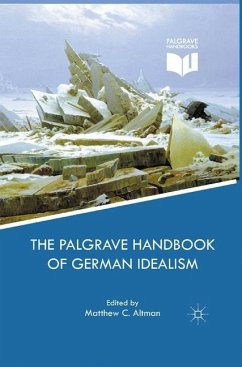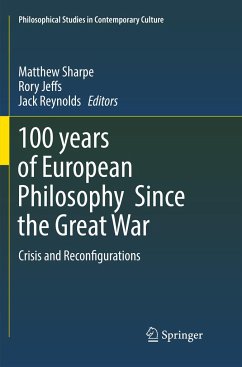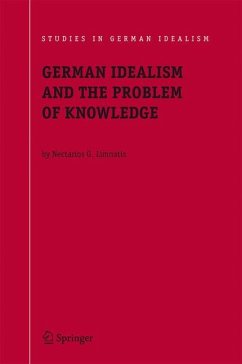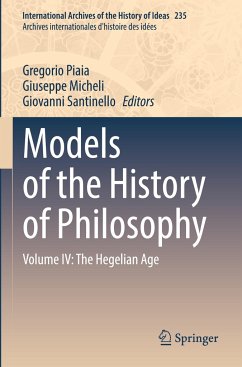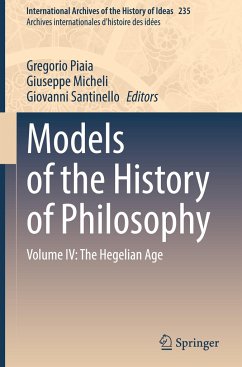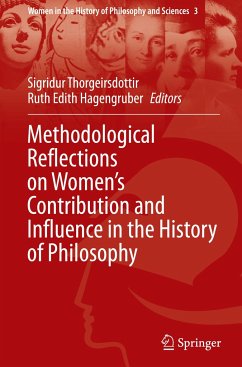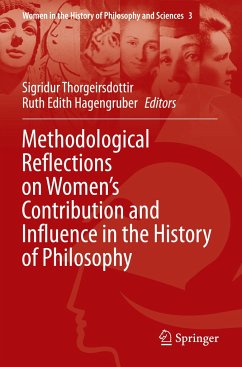
Hegel and Schelling in Early Nineteenth-Century France
Volume 1 - Texts and Materials
Herausgegeben: Chepurin, Kirill; Efal-Lautenschläger, Adi; Whistler, Daniel; Yuva, Ayse
Versandkostenfrei!
Versandfertig in 6-10 Tagen
91,99 €
inkl. MwSt.

PAYBACK Punkte
46 °P sammeln!
Hegel and Schelling in Early Nineteenth-Century France is a two-volume work that documents the French reception of G. W. F. Hegel and F. W. J. Schelling from 1801 to 1848. It shows that the story of the "French Hegel" didn't begin with Wahl and Kojève by giving readers a solid understanding of the various ways in which German Idealism impacted nineteenth-century French philosophy, as well as providing the first ever English-language translations of excerpts from the most important philosophical texts of the era.Inside volume one, readers will find a number of interpretative frameworks to help...
Hegel and Schelling in Early Nineteenth-Century France is a two-volume work that documents the French reception of G. W. F. Hegel and F. W. J. Schelling from 1801 to 1848. It shows that the story of the "French Hegel" didn't begin with Wahl and Kojève by giving readers a solid understanding of the various ways in which German Idealism impacted nineteenth-century French philosophy, as well as providing the first ever English-language translations of excerpts from the most important philosophical texts of the era.
Inside volume one, readers will find a number of interpretative frameworks to help them get to grips with this neglected field in the history of ideas. In addition to excerpted translations and a narrative of Hegel's and Schelling's fate in France during the early nineteenth century, this volume includes an introduction on transnational reception history, as well as an analytical catalogue of the translations of their work produced in French at this time, of thepublications which appropriated or interrogated their philosophical legacy, and of the journals, institutional structures and other mechanisms of dissemination that brought Hegel's and Schelling's philosophy into France. The book thus details the ways in which French philosophers of the period took up the debates and concepts of German Idealism, transformed them or rejected them. In this way, it aims to contribute to a reversal of the serious neglect of early nineteenth-century French thought in English-language scholarship and, in so doing, goes beyond a nation-based narrative of the history of philosophy.
Figures covered in the volumes include major philosophers such as Cousin, Leroux, Proudhon, Quinet, Ravaisson, Renouvier and Véra, as well as more neglected figures, like Barchou de Penhoën, Bénard, Lèbre, Lerminier, Pictet, and Willm.
Inside volume one, readers will find a number of interpretative frameworks to help them get to grips with this neglected field in the history of ideas. In addition to excerpted translations and a narrative of Hegel's and Schelling's fate in France during the early nineteenth century, this volume includes an introduction on transnational reception history, as well as an analytical catalogue of the translations of their work produced in French at this time, of thepublications which appropriated or interrogated their philosophical legacy, and of the journals, institutional structures and other mechanisms of dissemination that brought Hegel's and Schelling's philosophy into France. The book thus details the ways in which French philosophers of the period took up the debates and concepts of German Idealism, transformed them or rejected them. In this way, it aims to contribute to a reversal of the serious neglect of early nineteenth-century French thought in English-language scholarship and, in so doing, goes beyond a nation-based narrative of the history of philosophy.
Figures covered in the volumes include major philosophers such as Cousin, Leroux, Proudhon, Quinet, Ravaisson, Renouvier and Véra, as well as more neglected figures, like Barchou de Penhoën, Bénard, Lèbre, Lerminier, Pictet, and Willm.






